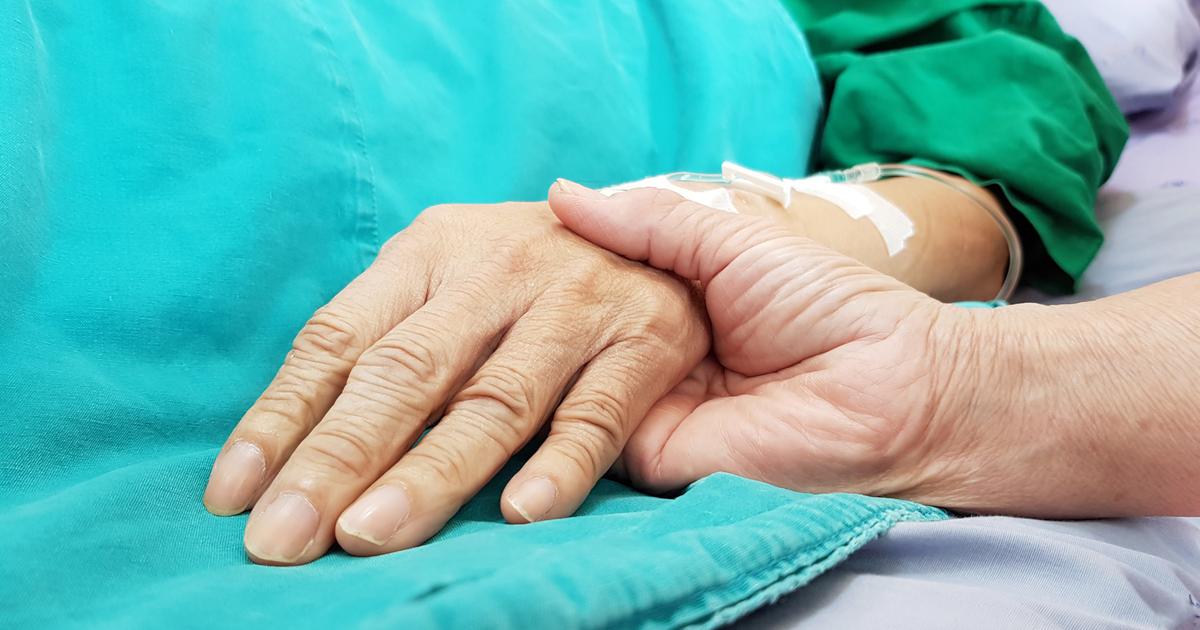It is a powerful report that unvarnished answers the many questions raised in recent months about euthanasia and assisted suicide in the end-of-life debate. A direct text that dismantles one by one all the arguments in favor of including a right to "active assistance in dying" in the law. The report of the mission on the end of life, adopted Wednesday 28 June by the Social Affairs Committee of the Senate, does not hesitate to address the subjects that annoy.
After criticizing the government on the method of debate on the end of life ("multiplication of places of debate", lack of "clarity", "blurring of responsibilities"), the two LR rapporteurs, Christine Bonfanti-Dossat and Corinne Imbert attack the substance. Starting with the societal demand for active assistance in dying. The idea has been "cleverly hammered since the late 1980s by way of surveys", that active assistance in dying was "the only possibility to escape suffering", they believe. To counter this "bludgeoning", they cite in particular the survey on the end of life conducted by the firm Stethos for the Cercle vulnerability et société. The latter measured that, when several avenues to improve end-of-life care are proposed, a relative majority of 43% of respondents believe that the first priority is to legalize "active assistance in dying". 57% target other priorities: "Access for all to palliative care" for 32% and "improving the quality of life and support for the most vulnerable people" for 25%. Beyond the opinions of the healthy, the few studies that have examined the point of view of sick people are also "far from indicating a marked preference for active assistance in dying at the end of life or of great suffering".
As for the Claeys-Leonetti law on the end of life, adopted seven years ago, it suffers from a "lack of knowledge by the general public". The report argues for its wider application before legislating again. "Today we have a law that exists that some consider a national treasure. It is not acceptable that it is not applied everywhere and to imagine that patients could request active assistance in dying for lack of access to palliative care, "says Corinne Imbert.
Read alsoEuthanasia: "When we suffer, reassure us, relieve us, hold us back"
Charcot's disease
The report also tackles the frequent mention of Charcot's disease (amyotrophic lateral sclerosis) to support calls for legislation on active assistance in dying. "Invoking this pathology to support the need to amend the Claeys-Leonetti law is extremely dangerous," denounce the senators who call for more caution. "This disease should not be used as a banner to defend a cause. Many patients want to live even if they know they are doomed in the current state of research. And deep and continuous sedation until death can be put in place for these patients, "insists Corinne Imbert.
Active assistance in dying would be "dangerous in many ways," according to the report. The latter evokes in particular the difficult definition of the criteria for access to euthanasia or assisted suicide but also the puzzle of carrying out the act while a majority of caregivers consider that "giving death is not a care". Belgium, Netherlands, Switzerland, Canada... The senators learned a lesson from these examples of foreign countries that is at the heart of their work. "In those countries that have legislated active assistance in dying, whatever restrictions were initially adopted, the framework has never held. Supply creates demand. The use of active assistance in dying is inevitably widening and carries a risk of trivialization," summarizes Corinne Imbert.
See alsoEuthanasia: these developments abroad that worry French caregivers
The report also bluntly addresses one of the "most disturbing" issues in the debate: that of the "temptation to rationalize" health spending through the use of euthanasia or assisted suicide. "In some countries that have authorized active assistance in dying, the purely utilitarian aspect of the issue is no longer a taboo, warn the parliamentarians, citing studies conducted in Canada in 2017 on "projected savings thanks, so to speak, to active assistance in dying", established from hypotheses of a reduction of one month in the life of 60% of cancer patients and one week for the remaining 40%. " We decided to talk about it because it is absolutely scandalous to reduce the issue of the end of life to an economic calculation, explains Corinne Imbert. It had to be said because it shows that our model of society and solidarity is at stake." "Pressure exerted on the most vulnerable", "trivialization likely to blur some fundamental social references"... Faced with these "risks", the senators call for "privileging solicitude over nihilism" in the "French end-of-life model".
Adopted by a majority of the Senate's Social Affairs Committee, the report was not unanimously accepted. Socialist Senator Michelle Meunier, who also authored the report, is in favour of a law on active assistance in dying. An opposite view that she set out a "dissenting opinion" embedded in the report. A foretaste of the oppositions looming in parliament.

